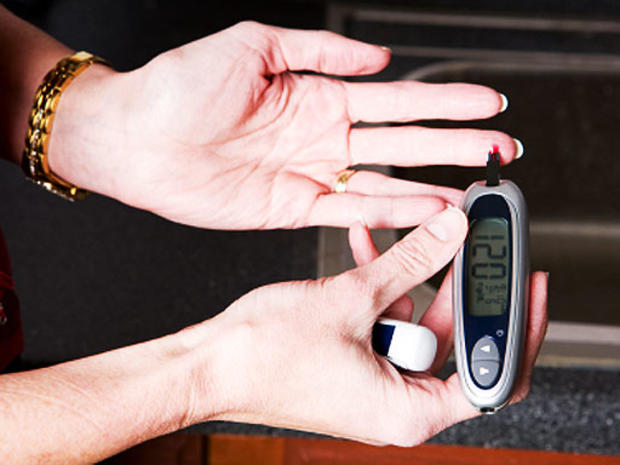Diabetes: 10 Deadliest Myths
What can be done to reduce the risk of this devastating illness, which can lead to heart attack, stroke, blindness, and amputations? Quite a bit, says diabetes expert Dr. Neal Barnard, president of the Physicians Committee for Responsible Medicine. The key, he says, is not to fall victim to common myths about the disease. Here are 10 of the worst.
Myth: Diabetes Doesn't Run in My Family, So I'm Safe
When one twin has type 1 diabetes, the other has a fifty-fifty chance of having it, too. For type 2 diabetes, twins are more likely to share the diagnosis - the odds of the second twin having it can be as high as 75 percent. But even then, the reason may be that their diets and weight gain are similar.
Bottom line? To minimize your risk for diabetes, you need to exercise and watch what you eat no matter what your family history is.
Myth: Diabetes Is Caused by Eating Carbohydrates
In the U.S., the risk for type 2 diabetes is highest among frequent meat-eaters. Vegans have the lowest risk, and other groups (semi-vegetarians, fish-eaters, and lacto-ovo-vegetarians) are in between.
The real problem seems to be not carbohydrates, but fatty foods.
Myth: I'm Not Fat, So I Won't Get Diabetes
Luckily, the same dietary steps that reduce belly fat and hip fat also help prevent the build-up of fat inside cells.
Myth: Diet Has Nothing to Do with Type 1 Diabetes
What turns antibodies against the pancreas? One theory is that certain viral infections are to blame. But another possible culprit is cow's milk. Researchers are now exploring whether avoiding cow's milk early in life can help prevent diabetes.
Human milk is no problem. Studies have shown that breast-fed children are much less likely to develop diabetes than children fed milk-based formula.
Myth: Only Adults Get Type 2 Diabetes
Myth: Gestational Diabetes Is a Problem Only for Pregnant Women
Women should take gestational diabetes very seriously - and make the same sorts of dietary changes that help prevent type 2 diabetes.
Myth: Diabetes Is Irreversible
In 2009, the American Diabetes Association endorsed a new dietary approach to treating diabetes - one that focuses on low-fat, vegan (pure vegetarian) eating. Many people have found that this approach leads to significant weight loss and sometimes to the disappearance of signs of diabetes.
Of course, going back to poor eating habits is likely to cause diabetes to come roaring back.
Myth: Diabetics Must Avoid Carbs
The key is to know the difference between foods that contain lots of "good" carbs and those rich in "bad" carbs. One way to do this is to use the glycemic index, a rating system that indicates how much a given food affects blood sugar. Foods with low (healthy) glycemic index values include beans, pasta, yams, sweet potatoes, green vegetables, barley, and fresh fruit. '
White bread, white potatoes, and sugar have high glycemic index values and tend to cause blood sugar to rise.
Myth: Drugs Are as Effective as Diet at Controlling Diabetes
Diet and lifestyle are especially important for preventing diabetes. Recently, scientists tested two methods for preventing type 2 diabetes in at-risk people. Diet and exercise proved more powerful for prevent diabetes than drug treatments.
Myth: Diabetes Drugs Are Mostly Free of Side Effects
Metformin, the oral drug most often used as a first line of defense against type 2 diabetes, often causes digestive symptoms. Other drugs used to treat type 2 diabetes cause weight gain - which is unfortunate, since being overweight is a common problem among people with type 2 diabetes. Insulin injections present the same annoying problem.
This doesn't mean that people shouldn't take diabetes medications. But It does emphasize the need for diet and lifestyle approaches that can minimize the need for medicines.










